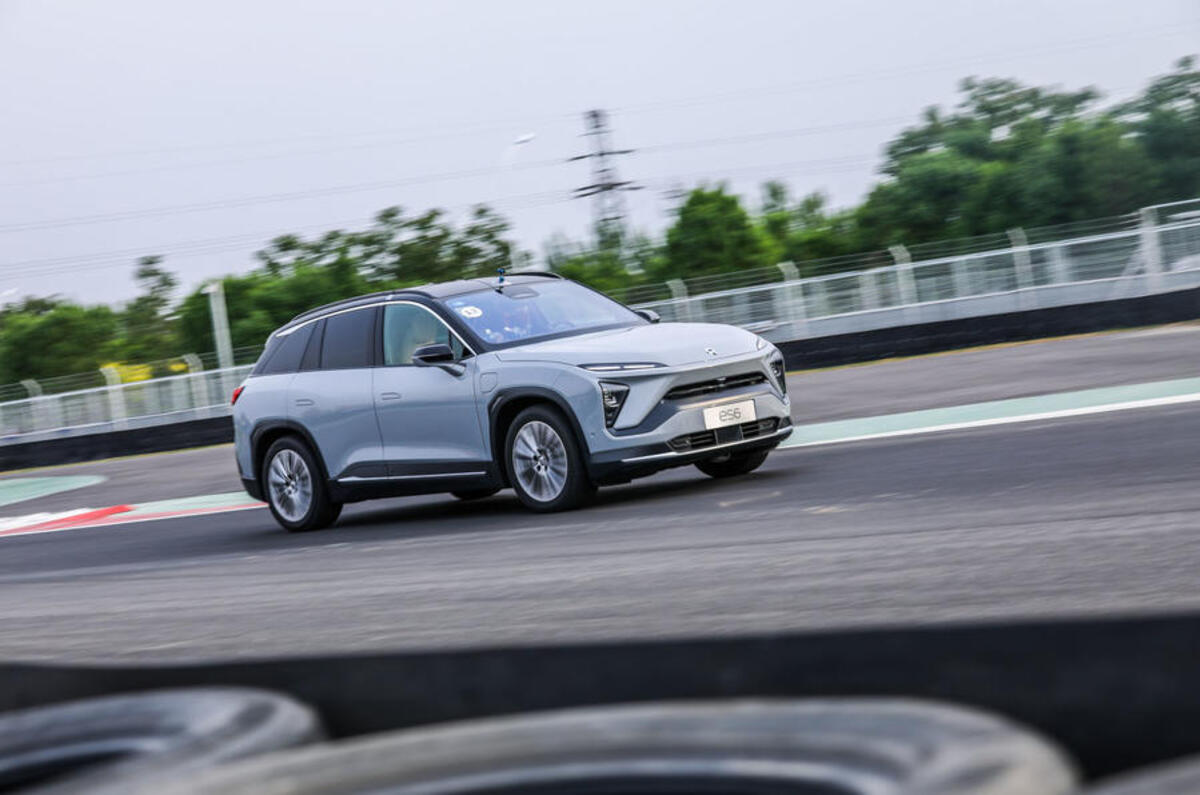Chinese electric vehicle manufacturer Nio has launched a battery leasing service based on its innovative battery swap system so drivers can buy a vehicle for a lower initial cost.
The Battery as a Service (BaaS) scheme enables customers to buy a Nio EV without the expensive battery pack element. They can then rent packs monthly, with the ability to swap between batteries of different sizes and range.
Nio’s cars are designed with removable battery packs and the firm has already established a network of 143 rapid battery-swapping stations in China. The new scheme will make use of those facilities. By the end of next year, Nio plans to have increased its network to almost 500 operational stations.
Selling a vehicle without batteries reduces the starting price of a Nio car by 70,000 yuan (approximately £7700), which, Nio hopes, will encourage more take-up from customers put off by the initial higher costs of an EV over a combustion-engined car.
The batteries for Nio’s leasing service will be supplied by a company established by Chinese battery makers, of which the most prominent is the battery manufacturer and technology company Contemporary Amperex Technology (CATL).
Several car firms have previously offered battery leasing schemes. Renault initially offered the electric Zoe hatch purely with a battery lease option, but the firm ditched the scheme last year, citing the reduction in costs for the battery packs.
The key difference with Nio's scheme is that previous EVs offering battery lease options have had the battery built in, so customers were tied into the lease for the period they owned the vehicle. The battery swapping system used by Nio enables customers to choose from small or larger battery packs at differing prices, based on their current needs.
The Chinese government is also pushing Battery as a Service and related battery swap schemes as a way of reducing the cost and improving the range of EVs in order to help boost sales from customers outside of major cities.
Nio currently makes premium EVs exclusively for China but has said it aims to expand to other markets from 2022, beginning with selected European countries.
READ MORE
Nio reveals new EC6 electric coupe SUV
Chinese EV start-up Nio secures major funding boost
Bringing premium EVs to China: Behind the scenes at Nio





Join the debate
Add your comment
It's a pun
quote: The battery swapping system used by Nio enables customers to choose from small or larger battery packs at differing prices, based on their current needs.
Nice one Autocar but there's no mention of costs. How much Nio will charge?
Got there before Fiat?
This idea of swapping batteries of different sizes was touted by Fiat with its CentoVenti concept car. Questions were asked about how the suspension would be adjusted for the different battery weights involved. No answer has yet been forthcoming as far as I'm aware.
Chinese Apples, Italian Oranges
The two are not comparable. Changing from the 70kw to the 84kw battery, in the Nio, adds about 80kg, or the weight of a large adult, in cars that already weigh over 2000kg. Further the whole pack is swapped, so the additional weight is spread over the whole of the pack (so your extra adult is laying down with their arms and legs akimbo). In any case, it'll have less effect than adding a trailer or caravan to the back but, even so, they have adaptive suspension.
The 120 is planned to come with a factory fitted battery along with three compartments to add batteries of equal size, for greater range, so each time an additional battery is fitted it's adding all of the additional weight into a concentrated space, and the weight uplift is quite significant in what is a smaller and therefore, one presumes, lighter car.
lease cost not £1,800? Should say £18,000?
Think battery lease cost out by a factor of 10?
Bad Conversion.
Yep. It's either about £1800, and 16,100 RMB or £18,000 and 161,000 RMB.
In either case it would be wrong. The deduction for the battery-less car is 70,000 RMB (just under £8k), making the least expensive Nio 274,000 RMB (just over £30k), and the battery lease is 980 RMB per month (about £110).
For cars over 300,000 RMB (about £33k) further reduction incentives are only available to buyers in China if the car's battery is swappable. All other incentives will stop (from this year I believe).
it takes 3 minutes to swap the battery, add a couple of minutes to park up and then retrieve the car.
Is This The Way Forward?
Anyone think this is the way forward?
Motives
It's a good question Boris, the answer to which will come down to nudging manufacturers, and others, with legislation, incentives, and direct action, rather than waiting on them to come to their senses on their own.
It's reported as if Nio have been creating battery swapping stations in isolation. They haven't. As I mentioned elsewhere, it's part of a national infrastructure plan to provide rapid charging and swapping stations all over China. Already the G4 motorway (Beijing to Hong Kong, nearly 1,400miles) has 18 battery swap stations along it; that's roughly one every 75 miles (if all accessible in both directions), at worst one every 150 miles.
They now only give incentives to EVs that will have swappable batteries, and the battery consortium that Nio have been instrumental in setting up is genuinely trying to standardise battery packaging accross all Chinese manufacturers, but would rather euro manufacturers would join in too.
Elesewhere if it's left up to manufacturers, energy companies, even service station providers (who are already loving the revenues from Tesla, Ecotricity, et al for charging spaces) to make something like this work, it probably won't.